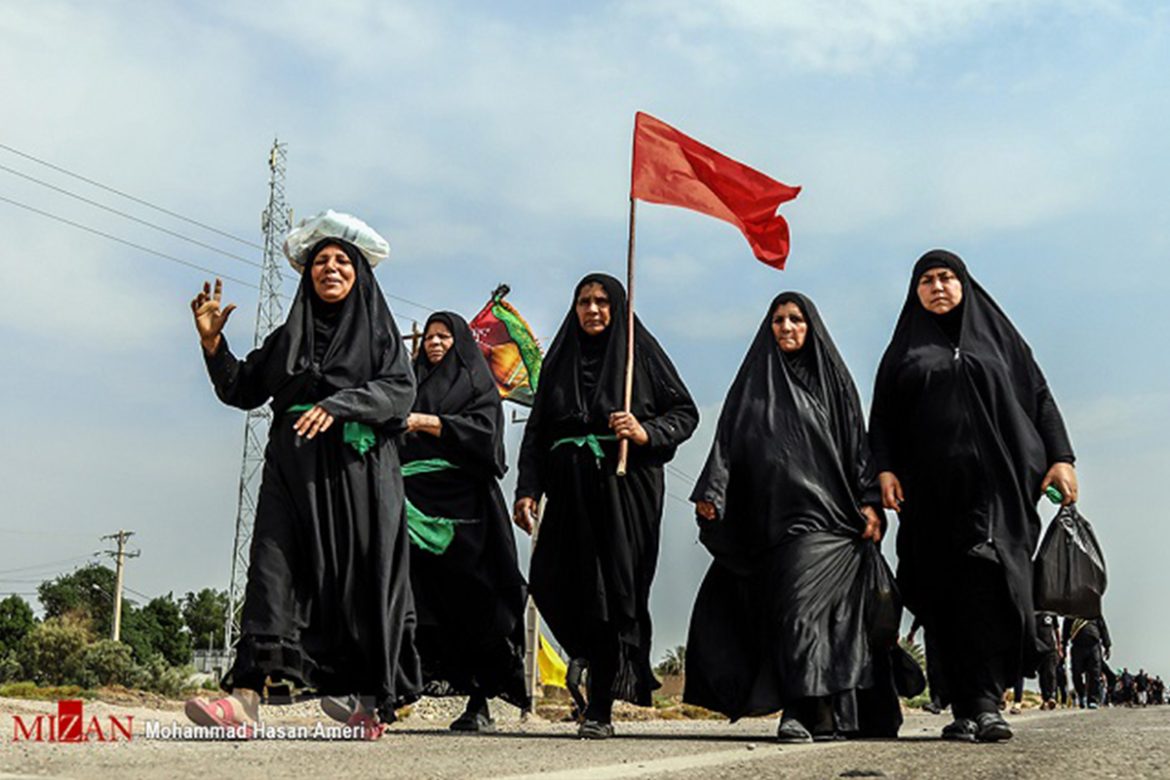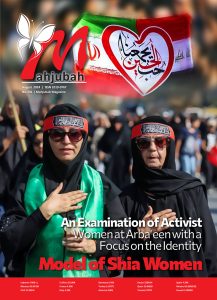The Arba’een Pilgrimage to Karbala, commemorating the martyrdom of Imam Hussain (peace be upon him), holds profound significance globally. Rooted in the enduring legacy of sacrifice and resistance against oppression, Imam Hussain’s principles unite millions annually, transcending sectarian and national boundaries. This pilgrimage cultivates a Hussaini renaissance, fostering spiritual, cultural, and intellectual growth among participants. It serves as preparation for the awaited Imam Mahdi, emphasizing justice, solidarity, and readiness for his leadership. The pilgrimage embodies values of social justice, unity, and moral integrity, crucial for nurturing a Mahdavi personality committed to combating injustice and upholding righteous governance.
Despite nearly fourteen centuries since his martyrdom, Imam Hussain’s sacrifices during Ashura continue to inspire courage and resilience among believers and freedom lovers worldwide. The Arba’een pilgrimage to Karbala has become a global event symbolizing unity and solidarity across faiths, drawing millions from diverse backgrounds. This pilgrimage emphasizes shared human values such as justice, resistance against tyranny, and defending the oppressed. Imam Hussain’s legacy unites various Muslim sects and even non-Muslims, transcending geographic and ethnic boundaries, and stands as a unique phenomenon with universal appeal.
Imam Hussain’s revolution serves as a profound moral guide and catalyst for reform within the Islamic faith, emphasizing selflessness and resistance to tyranny. His declarations against submission to oppression, such as “Far be it from us to accept humiliation,” highlight his unwavering spirit. Hussain’s stand against extreme oppression inspired ultimate liberation, countering despotism and uplifting freedom fighters. His ideals and sacrifice continue to resonate, especially as modern injustices and ignorance grow, leading people away from spiritual values toward superficial worldly pursuits.
During the Arba’een pilgrimage, millions from Iraq and worldwide visit the shrine of Imam Hussain to revive his and the Ahlul Bayt’s principles. Pilgrims come with deep emotions and humanitarian sentiments, aiming to strengthen their faith and honor Imam Hussain’s sacrifices to preserve the pure Muhammadan message. Despite facing death and captivity, Imam Hussain, his family, and companions remained steadfast in their divine cause. Lady Zainab’s response to Imam Hussain’s mutilated body exemplifies this devotion. Today, pilgrims annually renew their pledge at this sacred site, raising banners of Imam Hussain as a powerful response to attempts to eradicate his legacy.
The Arba’een Pilgrimage is not merely a commemoration but a catalyst for a Hussaini renaissance, aiming to cultivate intellectual, cultural, and spiritual growth, promote social justice, and establish peace and moderation. It rejects extremism, violence, and terrorism, reinforcing Imam Hussain’s enduring message against tyranny. This pilgrimage shapes individuals who are ready for the Mahdavi reappearance, which promises to bring justice to a world filled with oppression. By observing the sacrifices of Imam Hussain and his companions, pilgrims develop a sense of communal responsibility that evolves into a virtuous society and ethical system based on justice. The pilgrimage prepares individuals with the moral and leadership qualities needed to support Imam Mahdi, fostering readiness for his appearance and the establishment of a righteous state. The Arba’een pilgrimage thus plays a crucial role in nurturing the Mahdavi personality, essential for combating injustice and corruption and supporting Imam Mahdi’s leadership.

Both Sunni and Shia Muslims anticipate the arrival of Imam Mahdi, a figure expected to support religion, establish justice, and lead Muslims. This anticipation, noted by Ibn Khaldun, transcends sects and religions, and has even intrigued Western philosophers like Bertrand Russell, Albert Einstein, and George Bernard Shaw. Shaw, in his book “Superman,” describes this awaited reformer as an evolved superior human with exceptional mental and physical capabilities, living a long life and benefiting from extended experience.
The Arba’een pilgrimage is vital for developing the spiritual, moral, and social character of believers, preparing them to support Imam Mahdi’s uprising and resist subjugation. This pilgrimage provides a spiritual atmosphere that fosters personal and societal reform through emulating righteous role models, particularly Imam Hussain. The physical challenges of the pilgrimage, such as enduring harsh weather and walking long distances, help forge a resilient and morally upright character. The event cultivates virtues like patience, humility, altruism, and self-sacrifice. Iraqi hospitality during Arba’een exemplifies these values, with locals providing generous support to pilgrims, showcasing a deep sense of brotherhood and unity. The pilgrimage serves as a powerful testament to Imam Hussain’s enduring humanitarian message, which continues to inspire millions globally.
The Arba’een pilgrimage fosters selfless generosity, altruism, and deep human empathy across diverse races and cultures, offering visitors a chance for introspection and spiritual growth. It encourages a review of one’s values and ideals, nurturing a sense of justice, love, and connection while avoiding pretentiousness. This pilgrimage also strengthens traits like bravery, patience, and moral conduct, contributing to the development of a Mahdavi individual. Observers witness pilgrims reaffirming their commitment to Imam Hussain, showcasing respectful interactions and adherence to Islamic principles. Additionally, the pilgrimage enhances individual responsibility and prepares believers for the Mahdavi uprising by mobilizing youth for defense and resistance, as seen in their role against ISIS. The Arba’een pilgrimage thus serves as a profound source of inspiration and mobilization for both spiritual and practical challenges.
The Arba’een pilgrimage integrates spiritual resistance with political readiness, promoting a principled stance against tyrannical regimes and the status quo. Imam Hussain’s revolutionary slogans, such as his call to oppose unjust rulers, inspire political vigilance and preparation for Imam Mahdi’s return. The pilgrimage embodies a spirit of resistance and jihad, urging individuals to reject tyranny and not align with oppressive political agendas. It also serves as a model for exceptional security organization, ensuring the safety of pilgrims through meticulous planning and risk mitigation. The pilgrimage’s effective security measures are noted for their success, with international observers acknowledging the exemplary order and respect during the event. This comprehensive approach to security and discipline provides valuable insights for maintaining the integrity and readiness of the Mahdavi movement.
The Arba’een pilgrimage fosters economic discipline by encouraging participants to use their financial resources wisely to support religious causes and the Mahdavi revolution. The willingness to spend and sacrifice wealth demonstrates the pilgrimage’s capacity to mobilize economic resources for the cause. This financial support, evident in the budgeting for processions and food distribution, highlights the economic strength of the Hussainian community and its commitment to serving the religion.

The Arba’een pilgrimage plays a crucial role in fostering unity and intellectual growth in preparation for Imam Mahdi’s reappearance. It promotes peaceful coexistence and social cohesion by uniting people from diverse backgrounds, transcending class, race, and nationality. This unity contributes to a strong social fabric, enhancing Islamic solidarity and accelerating the Mahdi’s anticipated return. The pilgrimage also emphasizes self-purification and intellectual development, encouraging participants to seek knowledge through seminars and intellectual activities. This comprehensive approach ensures that individuals are spiritually, socially, and intellectually prepared for the future state of justice.
The media has historically played a key role in preparing humanity for prophetic events, including the arrival of Imam Mahdi, the inheritor of the prophets. Prophet Muhammad and Imam Al-Ridha utilized various media tools, such as proclamation and poetry, to promote the cause of the Mahdi and prepare the community for his coming. The Arba’een pilgrimage and its associated media platforms continue this tradition by reminding people of Imam Mahdi’s arrival and encouraging spiritual preparation. Media efforts include broadcasting programs, organizing lectures and conferences, publishing articles and books, and producing films and series to enhance public awareness. Notable examples include the film “Nostradamus,” which referenced the coming of a descendant of the Prophet from Mecca. Overall, media serves as a vital tool in reviving and propagating the teachings of Ahl al-Bayt and preparing the world for the Mahdi’s appearance.
The Arba’een pilgrimage has always been and continues to be a rich source of sacrifice and altruism, dedicated to upholding noble prophetic principles and values. The Arba’een pilgrimage represents an intensive, practical educational experience in the just values that will underpin the state of Imam Mahdi (peace be upon him). It is an ethical, mobilizing, political, and economic school that shapes the individual for the awaited appearance, thanks to its practical aspect that fosters a sublime spirit capable of being an active member in the state of truth. Anyone observing the Arba’een pilgrimage and witnessing the gathering of tens of millions across different times and places, speaking various languages and belonging to different ethnicities and orientations, yet united by the figure of Imam Hussain (peace be upon him), chanting a unified call and raising a common slogan, can clearly see that this pilgrimage is one of the most significant precursors to the appearance of Imam Mahdi. It is imperative to utilize this platform to build a Mahdawi society that rejects oppression and injustice, rises against tyrants and oppressors, and does not compromise with deviants and despots, regardless of their power and arrogance, in preparation for the establishment of the promised state.
Moreover, it is our duty, each from their respective platform, to promote awareness of the Arba’een pilgrimage and to counter the false narratives propagated by those who seek to empty this event of its essential mission—mobilizing the righteous among our nation to rise against tyrants and elevate human souls to a realm of profound emotional and spiritual connection. By observing the practices and values exhibited during the Arba’een pilgrimage, it becomes evident that this event serves as a crucial preparatory stage for the awaited appearance. The pilgrimage not only strengthens communal bonds among diverse participants but also provides an opportunity to instill and practice the values of justice, sacrifice, and unity that will be essential in the state of Imam Mahdi. It is a living demonstration of the principles that will guide the just governance and the active engagement of the community in upholding these principles against any form of tyranny and injustice.
BY: Dr. Hana Saada A journalist editor-in-chief, and university lecturer from Algeria
View this article in Mahjubah 341





